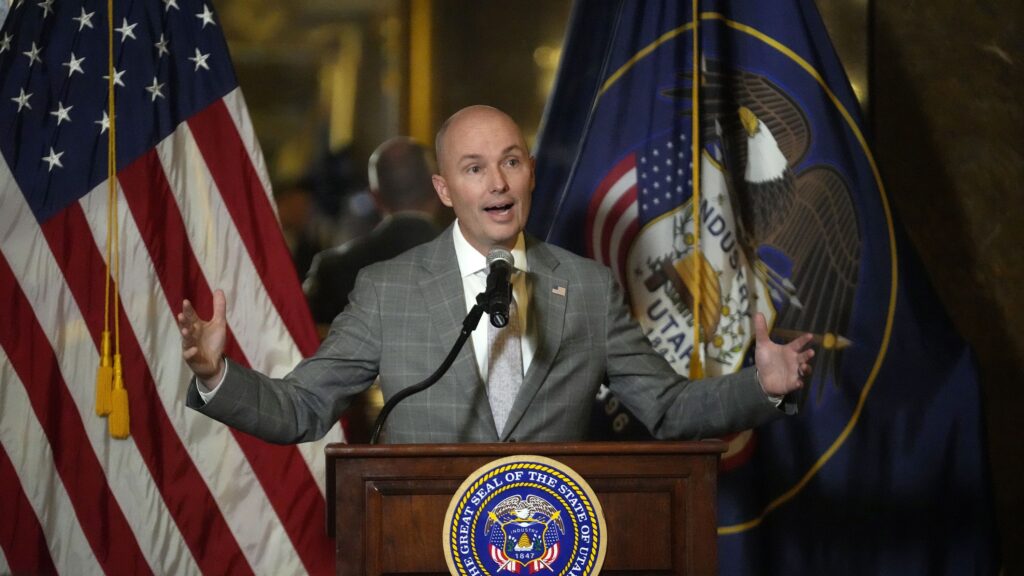SLOAN | Which way on the opioid crisis?


We read with dismay some headlines from the past week concerning the gestating opioid epidemic. One notes that drug overdose deaths in the U.S. exceeded 100,000 in a 12-month span for the first time, between April 2020 and April 2021. Another tells how any sort of wrongful death charges associated with peddling disguised fentanyl are exceedingly rare.
About this recent scourge of drug deaths, we know a few things: we know, for instance, that the pandemic was a contributing factor, not only insofar as it compounded the mental health complications that are conducive to drug use, but because many of the available drug addiction programs were made unavailable. But we also know that the single biggest contributor to that grim statistic is the diffuse availability of fentanyl on the streets, most of it being smuggled across the border, and much of it being mixed with other, less potent drugs or made to look identical to legal prescription pharmaceuticals.
The difficulties of charging, and then convicting, dealers of murder (because that’s what it is) when they sell counterfeit, fentanyl-laced pills, are alarming. Despite 525 people in Colorado dying from fentanyl this year alone, there has been only one federal conviction, back in 2019, with another pending. And, at the state level, the 18thJudicial District was successful in securing an indictment against one of these mutts for first-degree murder for giving a 16-year-old girl fentanyl pills disguised as prescription drugs in 2020.
But the complexities involved in investigating these crimes and building prosecutable cases against the offenders are enormous and require far more resources than what investigators and DAs are currently availed. Which makes it all the more perplexing, given the gravity of the situation, why some Attorney’s General around the nation remain obsessively fixated on pursuing legally irresponsible “public nuisance” lawsuits against the pharmaceutical companies that (legally) manufacture the (legal) medications that the criminals are imitating to peddle (illegal) fentanyl.
The prevenance of public nuisance law was 12th century England, where it was intended to protect publicly owned property – making it a criminal offence, for instance, to obstruct a highway. It has since morphed into a system of public tort law to protect broader community interests; one cannot keep leaking barrels of highly combustible liquids improperly stored in the neighborhood, for instance, nor can one sell a product with a known, potentially deadly fault, with legal impunity.
Predictably perhaps, these laws have in recent times been weaponized as legal howitzers to go after politically unpopular industries, or simply convenient targets, but have often been summarily rejected by the courts.
Public nuisance lawsuits leveled against opioid manufacturers are based on the same fragile arguments, and have now met the same fate, as the Oklahoma Supreme Court earlier this month rejected a $465 million judgment against Johnson & Johnson, the sole pharmaceutical company to fight a lawsuit in which the state initially sought billions of dollars in damages they said were caused by the company (and two others) manufacturing a legal, and medically useful, drug which other people decided to abuse, over-prescribe, steal or counterfeit.
As the court’s majority pointed out, a manufacturer has no control of their product once it is sold. My least favorite argument in the entire arsenal of polemics is the “slippery slope”, but it is not a stretch to see how this ruling was a win for business as the precedent could be set for suing the maker of virtually any product for some harm caused by its abuse. Ought Dell be liable for someone using one of their computers to commit a financial crime?
Meanwhile, as this is debated, fentanyl continues to flood the streets.
One finds in the Oklahoma Supreme Court an enclave of common sense and political courage. What remains in the wake is to see whether the AGs who were so assiduously focused on abusing public nuisance law will now redirect their considerable energies to providing the resources needed to combat the plague of fentanyl manufacture, smuggling, trafficking and abuse; and hold accountable those who knowingly deal in death, rather than continue to be distracted by convenient political theatrics. The alternative, tragically, is more of the same.
Kelly Sloan is a political and public affairs consultant and a recovering journalist based in Denver.













